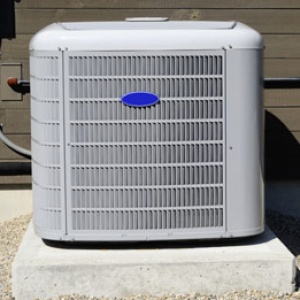Heat Pump: Residential Heating System
What is a Heat Pump?
Contents
 Perhaps your old furnace just went out and you’re looking for an affordable alternative. Maybe you’re thinking ahead to summer and wondering if you really need to install central air conditioning. It could also be that you’re just curious about a home heating system like a heat pump. Heat pumps are energy efficient alternatives for both heating and cooling your home. Read on to find out if a heat pump makes sense for you:
Perhaps your old furnace just went out and you’re looking for an affordable alternative. Maybe you’re thinking ahead to summer and wondering if you really need to install central air conditioning. It could also be that you’re just curious about a home heating system like a heat pump. Heat pumps are energy efficient alternatives for both heating and cooling your home. Read on to find out if a heat pump makes sense for you:
How Does a Heat Pump Work?
It’s time for a little physics lesson. A heat pump operates using the principles of heat transfer, moving heat from one point to another rather than creating heat by burning fuel. The device usually consists of two parts, an indoor unit known as an air handler and an outdoor unit similar to an air conditioner. Heat is absorbed and then released as it moves between the two units.
Heat likes to share, so it will flow from a high temperature area to one with a lower temperature. A heat pump reverses this process by using a small amount of energy to pull heat out of a low temperature area, like the outdoors, and push it into a higher temperature area, like your home.
Essentially, a heat pump constantly moves warm air from one place to another. That means it can also be used to cool your house, acting like an air conditioner and transferring the warm air outside.
Should I Incorporate a Heat Pump Into My Heating System?
Heat pumps are generally more energy efficient, as they simply move warm air rather than working to generate it. This can result in big reductions in your heating and cooling costs; for example, if you use electricity to heat your home, a heat pump can reduce the amount used by between 30 to 40 percent. Look for a SEER (seasonal energy efficiency rating) of 14-18 for maximum efficiency.
It’s important to note that, in many cases, heat pumps are unsuitable for cold climates. A moderate climate generates more of the heat necessary to create warmth inside the house. In colder climates, efficiency drops, and in some cases the heat pump simply cannot generate enough heat to overcome the chill in the air.
However, a geothermal heat pump, which transfers heat from the ground or a nearby water source, can overcome this problem, while backup burners combine the heat pump with another heat source to increase air temperature.
Talk to a Professional to Determine Whether a Heat Pump is Right for Your Home
A heat pump might be more energy efficient and could potentially save you money, but you want to make sure the device will keep you warm enough in the winter and cool enough in the summer. The experienced professionals at Point Bay Energy, Heating and Cooling, who have been serving New Jersey since 1906, can help you decide if a heat pump will meet your needs. Contact us today at (732) 349-5059.
